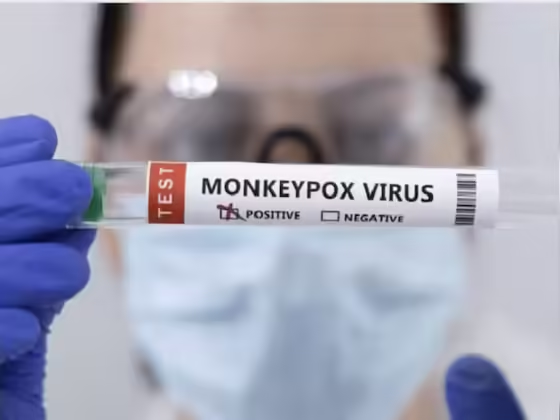New Delhi, August 31: The recent emergence of a new Mpox strain, particularly the Clade 1b variant. Has raised significant concerns about its potential impact on children.
While previous outbreaks primarily affected adults, this new strain has shown a notable increase in pediatric cases, highlighting the need for heightened awareness and preventive measures.
What Is Mpox Virus?
Mpox, also known as monkeypox, is a viral illness that can cause a range of symptoms, including fever, rash, fatigue, and swollen lymph nodes. It is transmitted through close contact with an infected person or animal, or through contaminate materials. While the virus can affect anyone, certain groups, such as children, are at higher risk of severe illness.
Mpox Virus Variant: All About The Clade 1b Variant
The Clade 1b variant of Monkeypox is distinct from the Clade 2 variant that dominated previous outbreaks. This new strain has associated with a higher incidence of severe illness, particularly in children. Studies have shown that pediatric cases involving Clade 1b are more likely to present with severe symptoms, such as pneumonia and encephalitis.
Increased Pediatric Cases
The number of pediatric Monkeypox cases has been steadily rising in recent months, coinciding with the emergence of the Clade 1b variant. This is a significant departure from previous outbreaks, where children were relatively rare cases. The reasons for this increase are still investigated, but it is likely due to a combination of factors. Including increased testing, greater awareness, and the increased transmissibility of the new strain.
Unique Challenges in Children
Children face unique challenges when it comes to Monkeypox infection. They may have weaker immune systems compared to adults, making them more susceptible to severe illness. Additionally, children may be less likely to recognize or report symptoms, leading to delayed diagnosis and treatment.
Mpox Virus: Preventive Measures
To protect children from Monkeypox, it is essential to implement effective preventive measures. These include:
- Vaccination: Vaccination is the most effective way to prevent Mpox. While the current vaccines are primarily design for adults. Efforts are underway to develop vaccines that are suitable for children.
- Hygiene: Promoting good hygiene practices, such as handwashing, respiratory etiquette, and avoiding close contact with sick individuals, can help reduce the transmission of Mpox.
- Surveillance: Strengthening surveillance systems to identify and track Mpox cases, especially in children, is crucial for early detection and response.
- Education: Raising awareness about Mpox among healthcare providers, parents, and the general public is essential for preventing the spread of the virus.
Read Also – Chickenpox Vaccine: A Potential Shield Against Mpox?
The emergence of the Clade 1b variant of Monkeypox poses a significant risk to children. The increased incidence of severe illness in pediatric cases highlights the need for urgent action to protect this vulnerable population. By implementing effective preventive measures, such as vaccination, hygiene practices, surveillance, and education, we can mitigate the impact of Monkeypox on children and safeguard their health.










